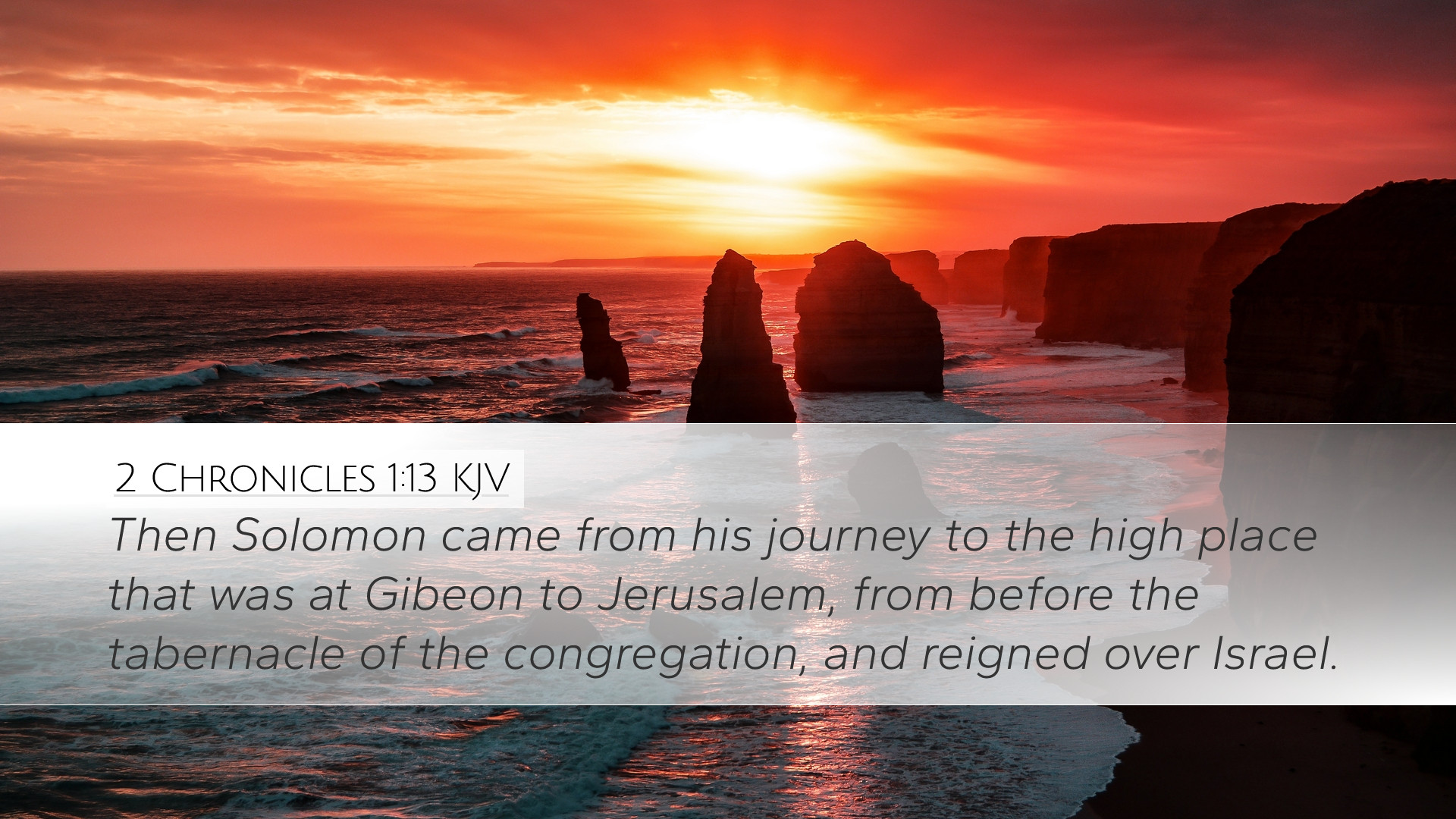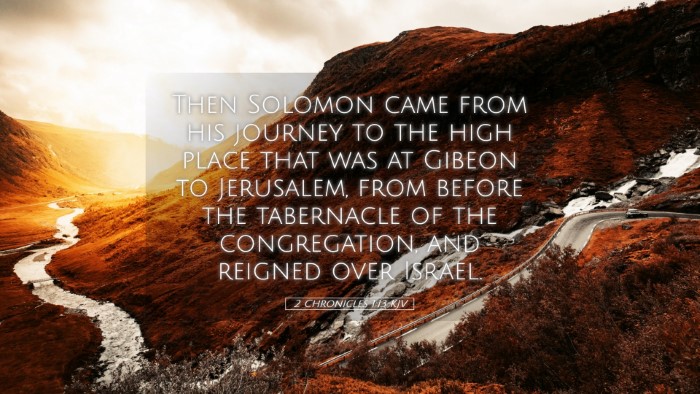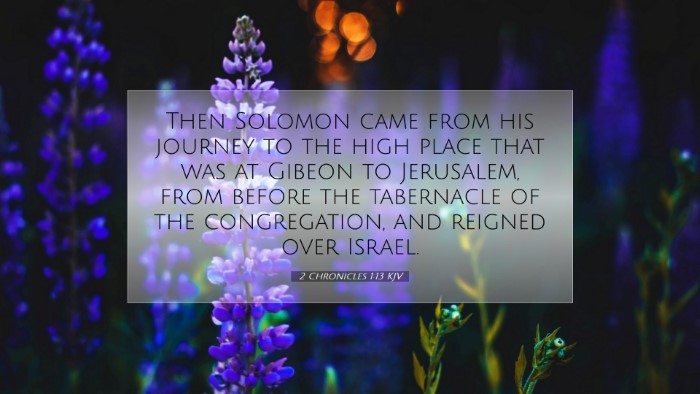Commentary on 2 Chronicles 1:13
Verse Context: 2 Chronicles 1:13 states, "So Solomon came to Jerusalem from the high place that was at Gibeon, and he reigned over Israel." This verse marks a significant transition in Solomon's early reign and highlights his journey from Gibeon to Jerusalem, providing important theological and historical insights.
Theological Significance
The movement from Gibeon to Jerusalem is rich in theological symbolism. According to Matthew Henry, Gibeon was known as a "high place" where sacrifices were made, but Jerusalem was the chosen city of God, the place of the temple and divine presence. This signifies the transition from general worship to a more centralized, focused worship that Solomon would later establish.
Albert Barnes emphasizes that this journey reflects Solomon's maturation as king, indicating his desire to rule wisely and in accordance with God's will. The mention of coming from Gibeon stresses the importance of the previous sacrifices made there, reinforcing the idea that Solomon began his reign acknowledging God’s favor and guidance.
Historical Context
Adam Clarke points out that Solomon’s reign, beginning with this movement to Jerusalem, represents a new era of leadership for Israel. The shift also illustrates the physical and spiritual consolidation of the kingdom under Solomon, as Jerusalem became the focal point of Israel's worship and governance. Historically, this transition is crucial as it prepares the stage for the construction of the Temple, which would fulfill God’s promise to David to establish a permanent dwelling for His name among the Israelites.
Symbolism of Gibeon
Gibeon held historical significance, noted as a city of refuge and a place where God was worshipped. According to Henry, the high place at Gibeon was an appropriate location for Solomon to engage with God, as it was a site of great reverence. The sacrifices Solomon offered there, especially prior to his journey to Jerusalem, displayed his humility and recognition of the divine, an important quality for any leader.
Leadership and Wisdom
In this passage, we see the budding of Solomon's reputation for wisdom. Clarke notes that his actions—traveling to Jerusalem with intentions of establishing a peaceful and prosperous reign—are indicative of the wisdom that would be reflected in Solomon’s later judgment and governance. Solomon's approach to leadership illustrates the balance of personal devotion and public responsibility, critical themes for contemporary leaders.
Lessons for Today
For pastors and theologians, Solomon's transition from Gibeon to Jerusalem can serve as a metaphor for personal development in faith and leadership. It emphasizes the need for leaders to not only begin with reverence for God but also to pursue a deeper relationship with Him as they navigate their responsibilities.
- Focus on God: Like Solomon beginning his reign, leaders today must prioritize their relationship with God as the foundation for their decisions and leadership styles.
- Unified Worship: The verse demonstrates the importance of centralizing worship in a community, reminding pastors that a church's health often hinges on shared practices and beliefs.
- Recognition of Past Guidance: The journey to Jerusalem indicates recognition of the past while moving forward, which is applicable to congregations reflecting on their history while aiming for future growth.
Conclusion
In summary, 2 Chronicles 1:13 encapsulates a pivotal moment not only in Solomon’s reign but also in understanding the nature of God’s leadership. The insights from public domain commentators highlight essential themes of devotion, leadership, transition, and the importance of worship. For pastors, students, and scholars alike, this exploration of the verse serves as a rich source for personal and communal reflection on their journeys of faith and leadership.


